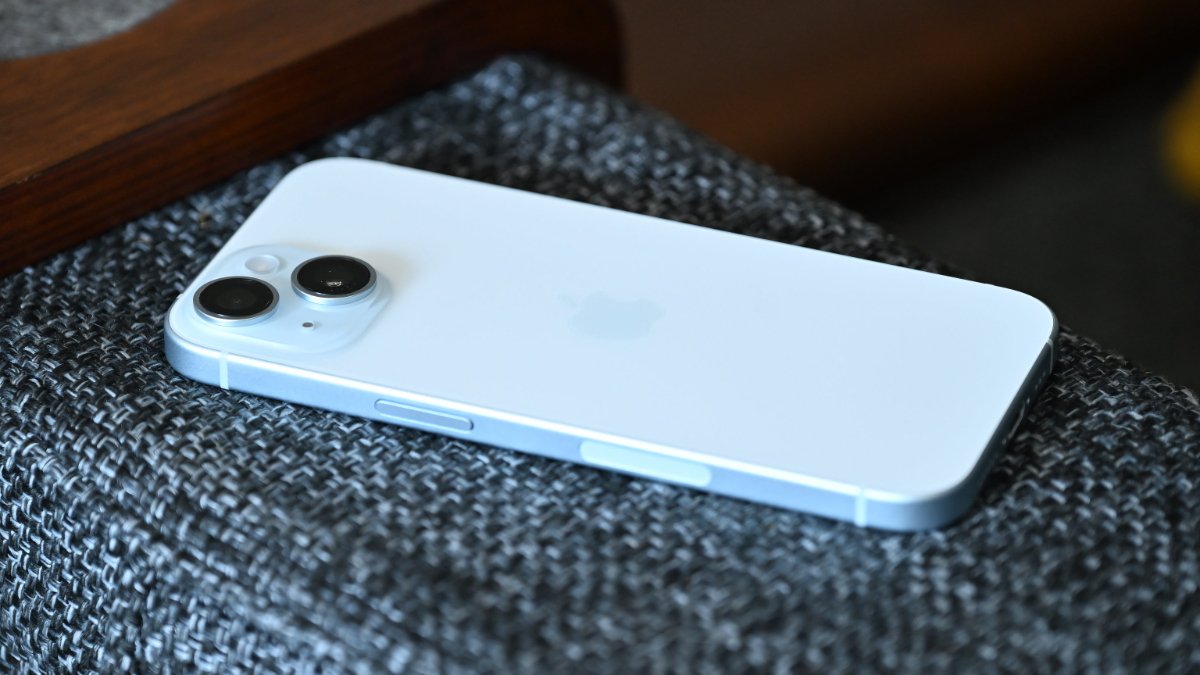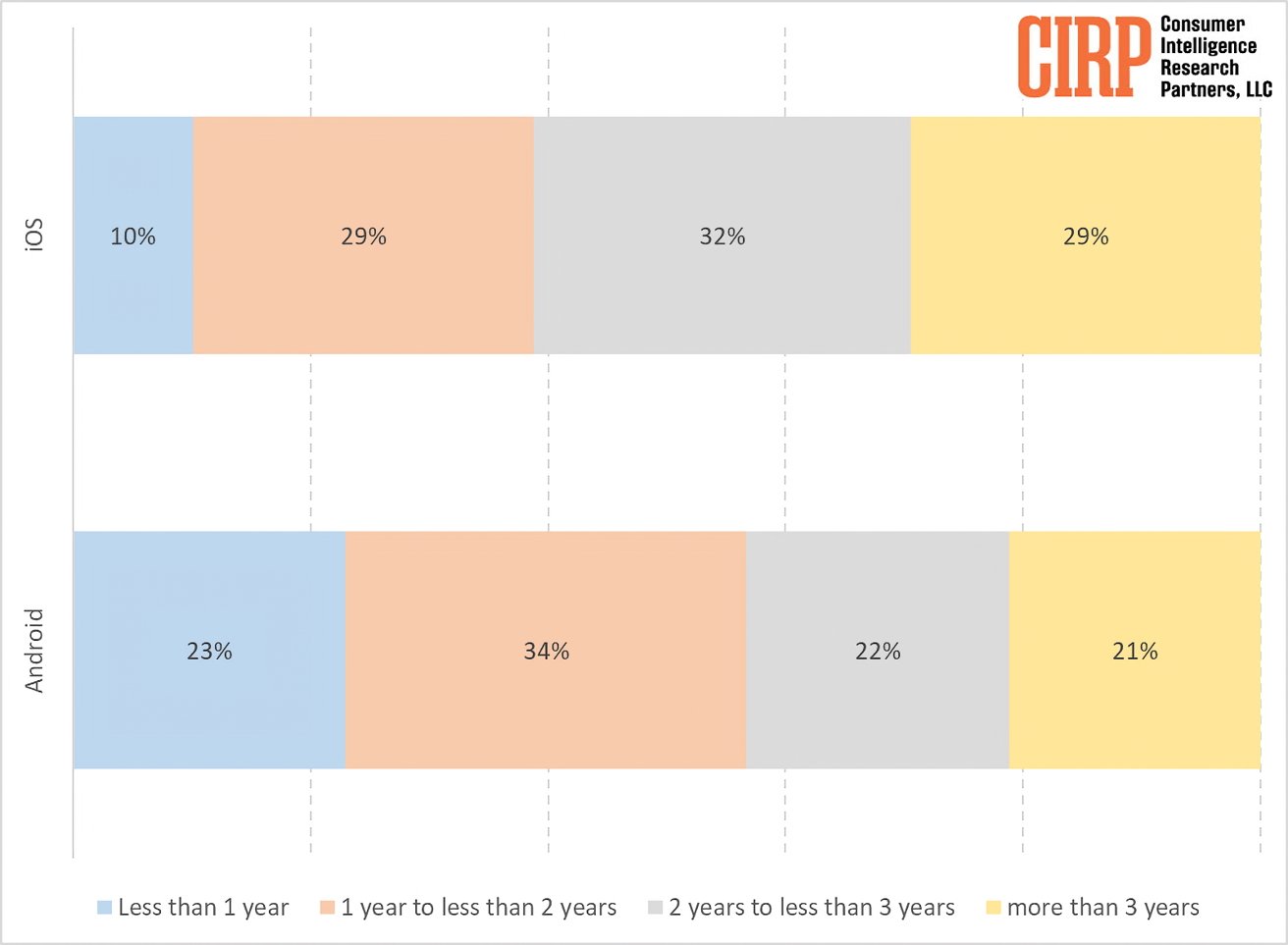Despite rough parity in the installed base of iPhones and Android phones in the US, iPhone owners tend to keep their devices for longer thanks to factors like build quality.
Previous reports from Consumer Intelligence Research Partners (CIRP) have indicated that people have been holding onto their iPhones for more extended periods before upgrading. That was a shift from a trend during the COVID-19 pandemic when people upgraded their iPhones more frequently.
A report on Wednesday from CIRP reveals further insights, confirming that iPhone users are once again replacing their smartphones less frequently and also incorporates data on Android users' replacement habits.
Specifically, 61% of iPhone buyers had their previous iPhone for two years or more, compared to 43% of Android owners. Furthermore, 29% of iPhone owners had their last device for three years or more, while only 21% of Android owners could say the same.
On the flip side, only 10% of iPhone owners had their previous device for a year or less, compared to almost a quarter of Android owners at 21%.
Upgrade cycles
Commonly held beliefs suggest that iPhone owners are wealthier and more attuned to technology and style, while Android users are generally more budget-minded. However, the data doesn't match up with those assumptions, and CIRP offers a couple of explanations.
The iPhone receives annual updates, providing just one yearly incentive for consumers to purchase a new device. On the other hand, the Android ecosystem, featuring brands like Samsung, Google, and Motorola, offers multiple new releases each year.
That gives Android users more frequent opportunities to consider upgrading, even though brand loyalty exists within the Android community.
It's also possible that the iPhone replacement cycle is slower due to the device's durability and reliability, leading to an extended period of satisfactory user experience.
 Andrew Orr
Andrew Orr








-m.jpg)







 Wesley Hilliard
Wesley Hilliard

 Oliver Haslam
Oliver Haslam
 Christine McKee
Christine McKee
 Amber Neely
Amber Neely








3 Comments
Because we can...